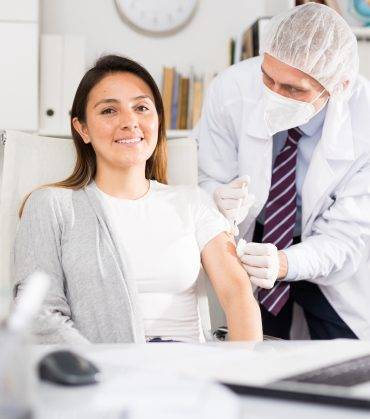
Vaccines and vaccination policy are regulated in most countries by laws and regulatory agencies that oversee vaccine quality and adherence to national and international standards. Immunisation policies and goals should be outlined as part of a larger social policy and public health plan. It is essentially the cornerstone of primary health care, and it also aids governments in implementing important aspects of good public policy.
A General Overview on Immunisation
Immunisation is an essential component of public health and one of the most cost-effective treatments available. In recent decades, vaccination programmes conducted by pathology collection centres has made a major contribution to the decrease in childhood morbidity and death.
At initial contact, reputable Craigieburn health service should evaluate their patients’ vaccination status, and thereafter at intervals based on immunisation status and age. In general, preterm babies respond to vaccinations in the same way as full-term babies do. Families of babies who have already been discharged should be informed of the potential of adverse reactions and encouraged to call their primary care physician as soon as symptoms appear.
The problems connected with vaccination administration at podiatry services should be known to primary care practitioners. In general, people should be considered susceptible unless they can show proof of immunity, such as vaccination documentation, laboratory evidence of vaccine-induced or disease-induced immunity, or, in the case of some diseases, documentation of physician-diagnosed disease, which typically includes laboratory results documenting disease-induced immunity.
How Vaccine, Vaccination & Immunisation Works?
A vaccination is a substance produced from dead or alive, weakened strains of bacteria or viruses that are used to develop protection against infectious illnesses. The act of administering a vaccine to a person is known as vaccination. When you get a vaccination, your body responds with an immunological reaction. Vaccines work by simulating an illness to help build immunity. The larger the number of individuals who are vaccinated, the lower the danger of infection and disease transmission.
Immunisation protects people against a particular infectious illness and its acute consequences in the near term. Immunisation, on the other hand, may provide long-term protection against cancer and other chronic diseases. Immunisation has the advantage of benefiting the whole community, which is known as herd immunity.
Consult Us Now!
Immunisation is a hard-nosed science as well as a contentious topic in society. Depending on the burden of disease and vaccine in question, the primary goal of a given immunisation programme could be to save lives, prevent premature death and disability, improve children’s learning ability, reduce health-care costs or societal economic loss due to absenteeism, or any combination of these and other goals.
Call us on 03 7023 5959 or mail us now info@craigieburnonehealth.com.au.
Immunisation is a safe and effective way of giving protection against disease. Immunisation not only protects you and your family, but also the whole community by helping to control serious diseases.
Who can be immunised?
Most people can be immunised. If you have any concerns about your own or your child’s health, talk to your doctor first.
When do I get immunised?
Your health, age, lifestyle and job can determine the vaccines you may need.
Immunisation policy and governance
The Australian Government receives advice from experts and researchers to ensure safe immunisation services.
 Speedy Service
Speedy Service  Quality & Reliability
Quality & Reliability  Friendly & Caring Team
Friendly & Caring Team  Bulk Billing
Bulk Billing 


